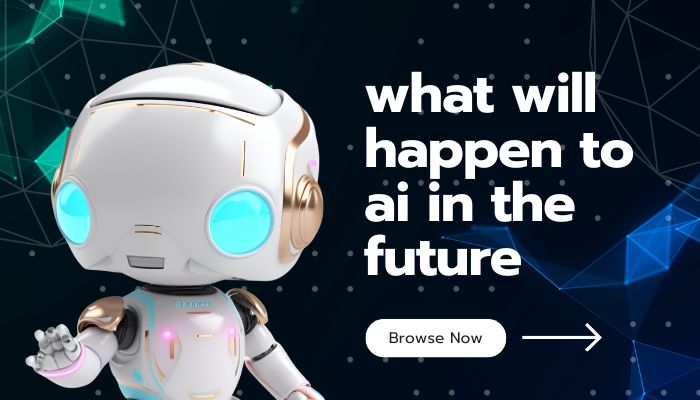Artificial intelligence, or AI, is not just a sci-fi idea; it’s already changing communities, industries, and how we use technology. AI has the potential to have an even greater influence on our future as it develops. The future of artificial intelligence is examined in this article, along with its developments, uses, moral implications, and possible drawbacks.
1. An overview of artificial intelligence
Artificial Intelligence is the simulation of human intelligence in machines that are made to behave and think like people. These systems are capable of learning, reasoning, solving problems, and making decisions. Innovations in big data analytics, neural networks, and machine learning have fueled the growth of artificial intelligence.
2.2 NLP, or natural language processing
NLP makes it possible for machines to comprehend, decipher, and react to human language. Advances in natural language processing (NLP) have resulted in the creation of advanced chatbots, virtual assistants, and language translation services. These innovations expand the possibilities for AI applications while improving human-machine interaction.
2.3 Vision on Computers
Machines can now comprehend visual data and make decisions thanks to computer vision. In industries like autonomous vehicles, medical imaging, and surveillance systems, this technology is essential. Computer vision systems are now far more accurate and efficient because to improved hardware and algorithms.
3. AI Uses in Various Industries
AI is transforming healthcare by offering instruments for personalized medication, illness diagnosis, and treatment planning. AI systems are able to evaluate medical photos, forecast patient outcomes.
Data Security
Although AI has many advantages, it also brings up ethical issues, especially with regard to data protection. For AI systems to work well, enormous volumes of data are required, so protecting the privacy and security of this data is crucial. Strict laws and moral principles are required to safeguard people’s private information.
Fairness and Bias
Biases in the training data that AI systems use can potentially be maintained by them. A major difficulty is ensuring that AI algorithms are impartial and fair. It is necessary to work toward creating AI systems that are accountable, transparent, and support equity and fairness.
In summary
Artificial intelligence has enormous potential in a number of fields in the future. AI has the power to completely transform a number of industries, including banking, transportation, and healthcare.
4.2 Security and Privacy
Large-scale personal data collection and analysis are commonplace while using AI. Ensuring data security and safeguarding user privacy are critical. To protect sensitive data, best practices and regulations must be put in place.
4.3 Transparency and Accountability
Decision-making procedures used by AI can be convoluted and unclear. Establishing accountability and transparency in AI systems is crucial to fostering confidence. It is recommended that developers create channels for accountability and offer lucid explanations for judgments made by AI.
5. Difficulties and Prospects
Even with these tremendous advances, AI still has technical issues. Enhancing AI models’ resilience, applicability, and comprehensibility is still a top concern. Novel methods and architectures are being investigated by researchers to tackle these difficulties.
6. The Future of AI Through 2030 and Beyond
With that in mind, AI is expected to keep growing and changing at a quick pace. By 2030, artificial intelligence (AI) will likely permeate more aspects of our daily lives, spurring creativity and augmenting human potential. Key trends to keep an eye on include:
6.1 Cooperation Between Humans and AI
instead of replacing human capabilities, AI will progressively enhance them. AI collaboration will improve output and innovation across a range of domains, including science and the arts.
6.2 Artificial Intelligence in Smart Cities
In order to create smart cities and optimize energy management, transportation, and urban planning, artificial intelligence (AI) will be essential. AI will be used in these cities to build habitable, efficient, and sustainable ecosystems.AI will become increasingly individualized, according to each person’s tastes.
